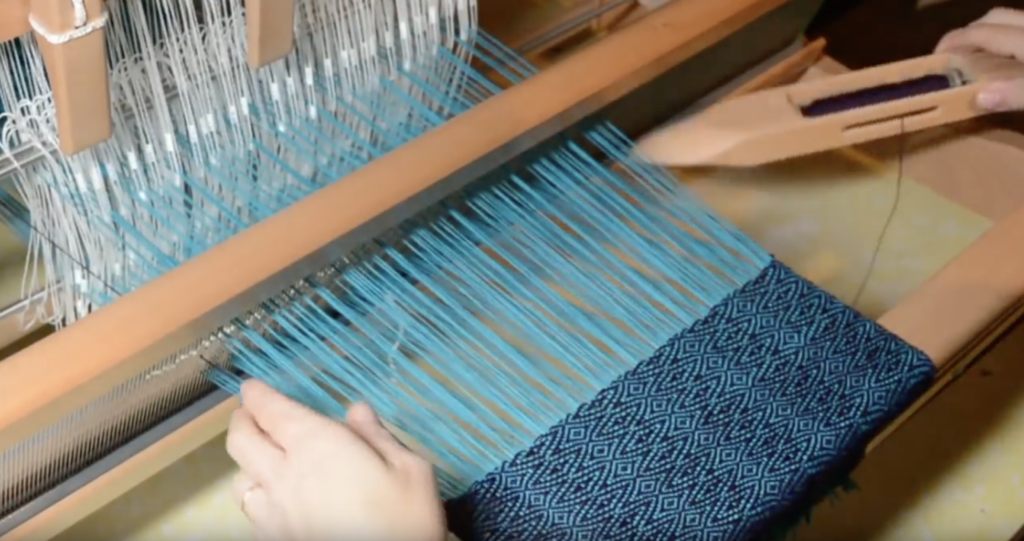The table loom is often purchased by either rigid heddle weavers on brand new weavers who want to experience working with multi shafts but don’t wish to commit to a floor loom.
My second loom purchase was an Ashford 8 shaft table loom. (Affiliate link).My back issues at the time were very troublesome and I didn’t want to invest in a floor loom only to find I couldn’t use it. It was a great decision for me at that time.
My second loom purchase was an Ashford 8 shaft table loom. (Affiliate link).My back issues at the time were very troublesome and I didn’t want to invest in a floor loom only to find I couldn’t use it. It was a great decision for me at that time.
The table loom is a perfect loom to progress into floor loom weaving – I am grateful for my time on the table loom for this reason, I picked up the floor loom very quickly because I gained a good understanding of multi shaft weaving first.
Lets look first at the benefits of a table loom:
* Portability. A lot of teachers use them for teaching, as they can fold up the loom (with the weaving still on it!), pack it into a bag and pop it in the car.
*Versatility. Table looms are available from 4 shafts right up to 16 shafts (Ashford make a 16 shaft), making your pattern possibilities huge!
*The levers are easy to learn. You operate the levers (which operate the shafts), throw your pick, place the shuttle down, then beat. Your brain and body don’t have to cope with co-ordinating too much.
*My table loom had a swinging beater, which was really easy to use and I liked the action of it.
*The perfect learning tool. I already mentioned this, but it’s a stand out feature for me. If I had moved straight to a floor loom I may have found it overwhelming, but the table loom was an excellent preparation.
*They are affordable. Some may not agree with me on this point, but when you compare the price of a floor loom you will see what I mean. My table loom cost approximately a third of the price of my floor loom!
*They are upgradable. You can buy a stand and you can also add treadles, making it more like a floor loom. Many table looms can be bought as a 4 shaft with the ability to upgrade to 8 shafts later on.
Now for a few of the not so positives (just my opinion!):
*It can be difficult to get a good, tight tension for throwing the shuttle. My boat shuttle took a lot of dives through the warp when I had my table loom.
*Moving heddles around can be a bit of a pain. For my loom, I had to collapse the castle and take each individual shaft out to arrange or move heddles. I found this time consuming and a little annoying.
*A table loom doesn’t have the strength of a floor loom. It’s excellent for scarves, towels, blankets etc but maybe not the best for say, a floor rug.
*When warping, it can be a little tricky to get around. Because my loom didn’t have a stand, I had to warp at the kitchen table. The loom was quite big (it was an 80cm) and I found it challenging to find the right positions for both the loom and me so that my back wasn’t compromised.
*It can be hard to find information on getting started on a table loom – when I started there was very little help available so there was a lot of figuring out to do. However, a lot of floor loom weaving information is very helpful for a table loom as well.
*The weaving is slower. Because the levers are hand operated, you have to put the shuttle down in between beats.
I have a number of free videos relevant to the table loom, it sure is a popular topic!
And if you have already taken the leap and own a table loom, my Introduction to Floor Loom Weaving Course is very relevant to you.
I hope this post has helped you. Next time, we will discuss the floor loom.
